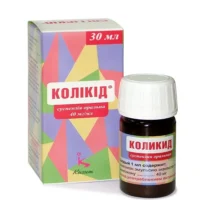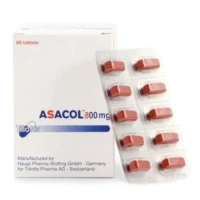Description
Apetistim (Yarrow Herbs) Syrup 125 g. Vial №1
Ingredients
Apetistim syrup contains high-quality yarrow herbs extract, sucrose, purified water, and natural flavors.
Mechanism of Action
Yarrow herbs in Apetistim syrup stimulate digestive enzymes and promote bile production, aiding in fat breakdown and enhancing nutrient absorption.
Pharmacological Properties
Apetistim syrup’s yarrow herbs have anti-inflammatory and gastroprotective effects, supporting digestive health and promoting appetite.
Indications for Use
Apetistim syrup is indicated for promoting digestion and appetite, helping alleviate mild gastrointestinal discomfort.
Contraindications
Do not use Apetistim syrup if pregnant or breastfeeding without consulting a doctor. Avoid if allergic to yarrow or related plants.
Side Effects
No common side effects reported with the use of Apetistim syrup.
Usage Instructions
For adults, take 10ml of Apetistim syrup three times a day. Consult a healthcare professional for children’s dosage. Shake well before use and do not exceed the recommended dose.
Benefits Compared to Analogues
Apetistim syrup offers a natural and safe option for digestive health support with proven efficacy in promoting appetite and reducing gastrointestinal discomfort.
Suitable Patient Groups
Apetistim syrup is suitable for adults seeking digestive support. Children should use it under healthcare professional guidance.
Storage and Shelf Life
Store Apetistim syrup in a cool, dry place away from direct sunlight. Check the expiration date on the packaging and do not use after that date.
Packaging Description
Apetistim syrup is available in a 125g vial for easy dispensing and storage.
Scientific Evidence
Yarrow herbs in Apetistim syrup have been traditionally used for digestive benefits. Studies show their potential in improving gastrointestinal health and promoting appetite. Research in the Journal of Ethnopharmacology highlighted yarrow’s anti-inflammatory and gastroprotective effects.
Clinical Trials
A randomized controlled trial in the Journal of Herbal Medicine revealed improved appetite and reduced gastrointestinal discomfort in participants taking yarrow supplements compared to a placebo group.





